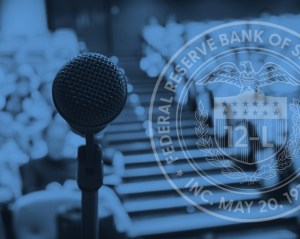The SF Fed maintains three advisory councils: the Community Advisory, Economic Advisory, and Community Depository Institutions Advisory Councils. The members of these councils represent businesses, financial institutions, and community organizations across the Twelfth District.
We regularly convene these councils to discuss the Twelfth District’s economy. The members bring valuable perspectives from around the District to the SF Fed.
We have created Advisory Council Observations to share what we have learned. The series will summarize recent insights about Twelfth District economic conditions contributed by our councils.
Our advisory councils are important sources of insights about the Twelfth District’s economy. Each council has a specific focus. The Economic Advisory Council (EAC) provides observations about the district’s economic and business conditions while the Community Advisory Council (CAC) concentrates on the economic experiences of underserved and lower-income communities. The Community Depository Institutions Advisory Council (CDIAC) shares information about banking conditions and the ability of community depository institutions to support local markets across the District. Meeting twice-yearly, the councils’ discussions are attended by President Mary Daly and other leaders from the Bank’s Executive Leadership Team, and the Economic Research, Public Engagement, and Banking Supervision groups.
During the Spring 2024 meetings, SF Fed economists provided a briefing on economic conditions, emphasizing that there has been significant progress toward reducing inflation to the Federal Reserve’s two percent goal. They also noted that while the labor market is cooling, the overall outlook for employment looks strong. Finally, they highlighted that wage growth over the past few quarters has outpaced inflation. This is important because it eases the pressure of elevated prices on consumers.
In her remarks to the councils, President Daly stressed the importance of what the SF Fed learns about the lived economic experience of communities across the Twelfth District. This is especially true now as the Federal Reserve continues its efforts to bring inflation down. President Daly and the other SF Fed Representatives asked council members for their assessment of the general health of the economy while also focusing on specific concerns such as affordable housing and workforce development.
Economic Advisory Council
At the Fall 2023 meeting, the members of the EAC reported that economic activity has expanded in recent months. They noted that this trend has continued through the start of 2024. Regarding the labor market, they observed that demand and supply of employees is coming into better balance with improved worker availability and a notable increase in job applications.
In terms of specific sectors and industries, the council members reported that retail sales and activity in consumer services sectors were strong, although reports indicated that some consumers were shifting from full-service establishments to fast food in addition to trading down their retail purchases in order to reduce expenses. They shared that demand for agricultural and animal products was solid and food manufacturing activity remained robust. Members observed that residential real estate activity was muted, although persistent shortages in housing supply continued to drive new construction in some areas. And they shared that commercial real estate activity varied by property type as demand for retail and industrial space was solid while office leasing activity remained weak.
Looking ahead, council members generally expected economic activity to normalize in 2024. They expect labor markets to cool further and inflation to come down closer to the 2.0 percent goal. Some council members highlighted potential softening in household spending later this year, particularly on discretionary goods and services, as pandemic-era savings are depleted.
In addition to their perspectives on the economy, the council members also shared observations about more general concerns, including heightened cybersecurity risks and the possible effects of ongoing geopolitical conflicts on the global supply chain. As at the Fall 2023 meeting, the council members pointed to continued uncertainty around generative artificial intelligence and its impact on worker productivity across various industries.
Community Advisory Council
Members of the CAC focused much of their discussion on the connection between the high cost of housing and the financial difficulties faced by low- and moderate-income (LMI) households. While housing affordability has been cited by the committee as a challenge in prior meetings, the members reported that evictions are rising and more households currently face challenges paying rent. They attributed this to a variety of factors, including a tight housing market and the expiration of eviction prevention programs. They also highlighted that difficulties affording housing are spreading up the income scale. As one member noted, now historically middle-waged occupations like nurses and firefighters are having a hard time finding housing they can afford.
Council members noted that compounding the economic pressure caused by housing is the high cost of child care, a challenge that has been raised in prior CAC meetings as a key barrier to labor market participation for LMI families. They shared that faced with both high housing and child care costs, families can’t save and many have difficulty making ends meet. A council member noted that in this situation they are seeing more people moving back in with their parents or asking grandparents to help with child care. They shared that some households are resorting to using credit cards – an expensive form of consumer debt – to pay for child care.
Small businesses can often be an engine of local economic development, and the council members shared their observations about this sector of the economy. They noted that higher interest rates have made it difficult for many small companies to afford business loans. Instead, they see that these companies are increasingly turning to credit cards and/or using personal funds which can be a riskier financing model. To help small businesses facing financing difficulties and other costs, some members pointed to the importance of better coaching and mentoring. They shared that with such supports in place, small businesses, especially new ones, may be better able to adopt a sustainable business model.
A consensus that emerged from the council members during the meetings is that the economic vulnerability of low- and moderate-income communities is rising. Economically more fragile, they shared that these communities may be less resilient in the face of future economic shocks.
Community Depository Institutions Advisory Council
Members of CDIAC opened their discussion with an overview of the trends in their operating environment. They observed that deposit competition varied based on location, partnerships, and product offerings. For example, they shared that competition for deposits was strong in large cities like Los Angeles, but was less intense in rural markets. Many members noted that they are concerned about deposit concentrations and working to diversify their deposit base by, for example, reducing dependence on large depositors.
As the council’s members noted during their previous meeting in Fall 2023, the evolution of the Commercial Real Estate (CRE) market is a key area of interest. This trend has continued; members noted an increased focus on managing risk in existing CRE portfolios. Discussing risk, some members pointed out that the most significant risk was negative carry. It can be difficult, they also observed, to convince customers to recognize this risk early enough.
Asked about trends in consumer lending, council members noted weaknesses in the sector. Members observed that financial difficulties have increased in some areas of the District, leading to customers making more requests for loan consolidations and home equity lines of credit. Members also observed higher delinquencies in indirect auto lending, as well as decreased resale value of used cars, as the supply of used cars has increased.
Understanding the Lived Economy
Our advisory councils are a vital source of information for the SF Fed. They provide us with valuable insights into how businesses and households across our District are navigating economic conditions on a daily basis. These insights help us fulfill our monetary policy mission. Understanding the ‘lived economy’ help us make monetary policy decisions that support a robust economy for all the residents in our District and across the country.
The views expressed here do not necessarily reflect the views of the management of the Federal Reserve Bank of San Francisco or of the Board of Governors of the Federal Reserve System.


